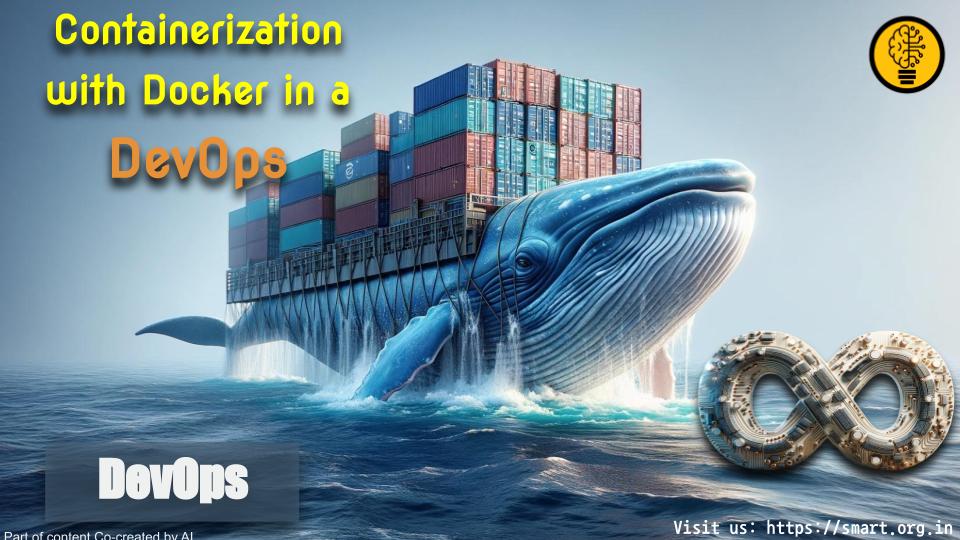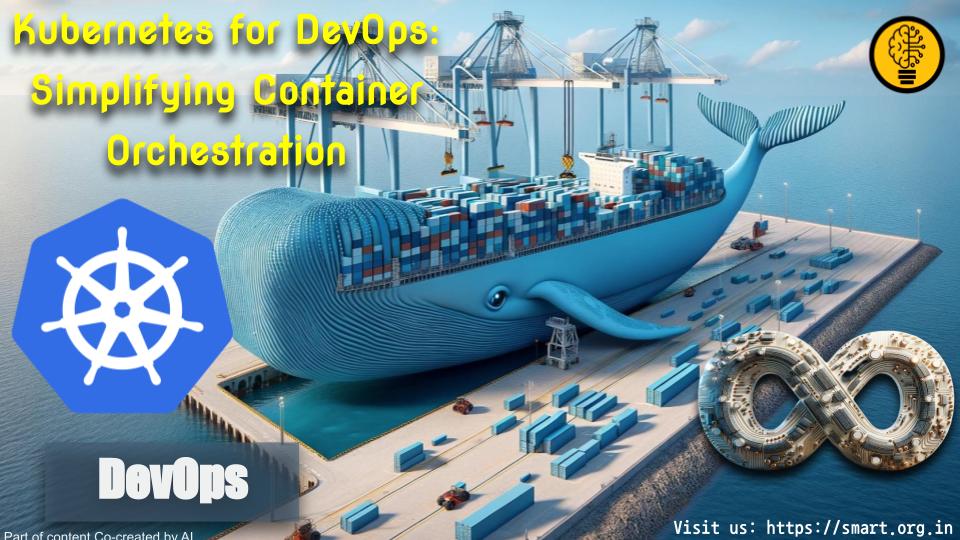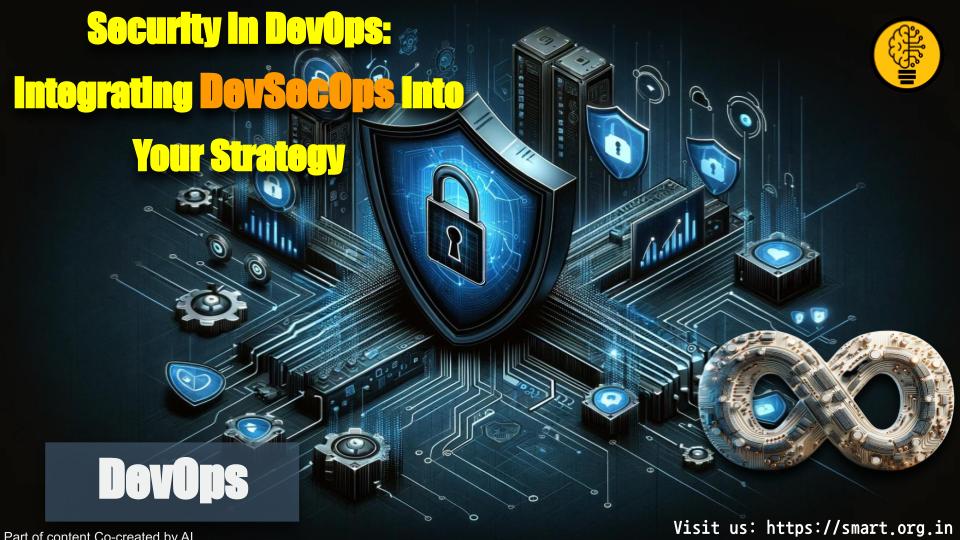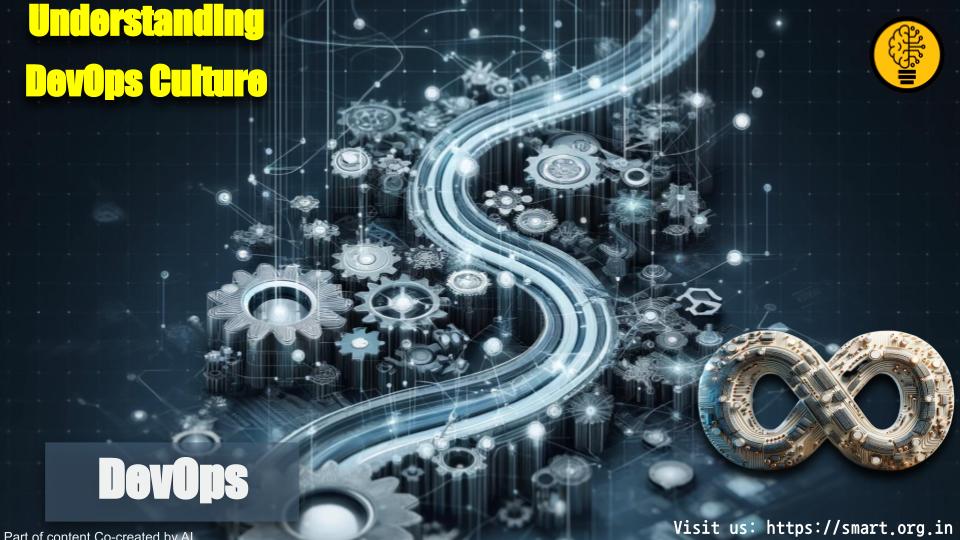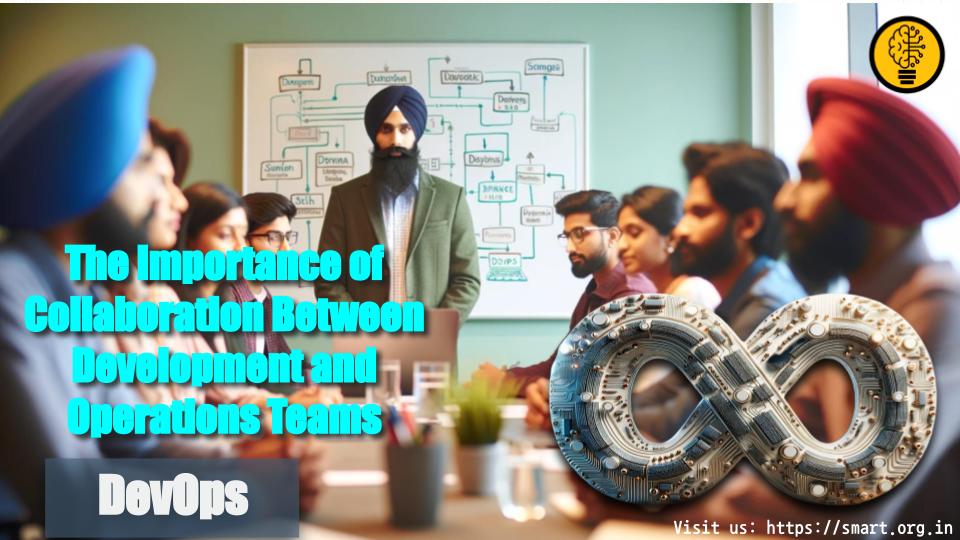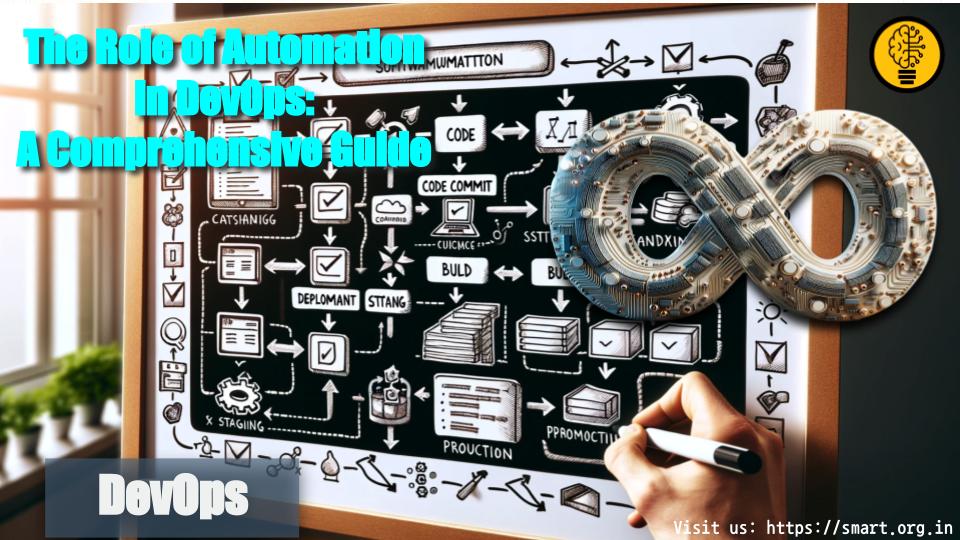Introduction: De-Mystifying the Path to Success For the uninitiated, success appears to be a chaotic blend of “luck” or “blindly pushing forward.” For the strategist, however, achievement is a replicable methodology. To architect a transformation in the “outer aspects” of your life your revenue, your influence, your net worth you must first re-engineer the “inner […]
Tag Archives: Devops
DevOps is a collaborative approach that combines software development (Dev) and IT operations (Ops) to streamline the software delivery process. It focuses on automation, continuous integration, and continuous delivery (CI/CD) to accelerate development cycles and improve software quality. DevOps teams work together to bridge the gap between development and operations, fostering efficiency and innovation in the software development lifecycle.
software development landscape, containerization has emerged as a critical component for achieving the agility and efficiency required by DevOps practices. Docker, one of the leading containerization technologies, has fundamentally changed how businesses deploy and manage software applications.
Smart Group India, we specialize in guiding startups and technology companies through the complexities of Kubernetes for Devops, integrating it into their DevOps strategies to enhance deployment processes, scalability, and system reliability.
Smart Group India, with its deep expertise and innovative approach, is uniquely positioned to enable startups and technology companies to implement and excel in their DevOps practices. Here, we explore the future trends and predictions in DevOps that organizations need to watch out for.
# Security in DevOps: Integrating DevSecOps into Your Strategy
In the realm of software development and operations, the integration of security has become a paramount concern. With the increasing prevalence of cyber threats, integrating security into the DevOps process, forming what is known as DevSecOps, is essential. DevSecOps not only ensures that security considerations are embedded from the onset but also that they are maintained throughout the application lifecycle. This blog explores the strategic integration of DevSecOps and how it can fortify your development processes against potential vulnerabilities.
## Understanding DevSecOps
DevSecOps represents the philosophy of integrating security practices within the DevOps process. It emphasizes the importance of security in the earliest phases of development, ensuring it is a priority rather than an afterthought.
– **Proactive Security**: Shifts security practices from a reactive to a proactive approach.
– **Continuous Security**: Integrates automated tools to continuously assess and address security risks.
## Key Benefits of DevSecOps
Integrating DevSecOps offers numerous benefits that enhance both security and development efficiency.
– **Early Detection of Vulnerabilities**: Identifying security issues early in the development cycle significantly reduces the costs associated with fixing them post-deployment.
– **Faster Recovery Times**: Organizations can respond more swiftly to security incidents, minimizing downtime and operational disruption.
– **Enhanced Compliance Posture**: Automatic compliance policies ensure that every piece of code complies with legal and regulatory standards.
## Integrating Security into Your DevOps Pipeline
The successful integration of security into a DevOps pipeline requires a strategic approach and the right set of tools.
### Security as Code
– **Automated Security Checks**: Implement security checks at every stage of the software development lifecycle.
– **Infrastructure as Code (IaC)**: Use code to manage and provision hardware, which can be automatically audited for compliance with security policies.
### Continuous Integration and Continuous Deployment (CI/CD)
– **Automated Security Testing**: Include static and dynamic security testing tools in the CI/CD pipeline.
– **Real-time Threat Detection**: Utilize tools that monitor and protect the deployment pipeline from emerging threats.
## Tools and Technologies for DevSecOps
Adopting the right tools is critical for effectively implementing DevSecOps.
– **Static Application Security Testing (SAST)**: Analyzes source code for security vulnerabilities without executing it.
– **Dynamic Application Security Testing (DAST)**: Tests the application in the running state, identifying runtime vulnerabilities.
– **Security Information and Event Management (SIEM)**: Provides real-time analysis and logging of security alerts generated by applications and network hardware.
## Overcoming Challenges in DevSecOps Implementation
While integrating DevSecOps is beneficial, it also presents several challenges that organizations need to navigate.
– **Cultural Shift**: Encouraging a culture that embraces security as an integral part of the development process, not just an add-on.
– **Training and Awareness**: Ensuring all team members have the necessary training to understand and implement security best practices.
– **Tool Integration**: Seamlessly integrating security tools into existing DevOps workflows without disrupting the development process.
## Best Practices for DevSecOps Success
To maximize the effectiveness of DevSecOps, consider the following best practices:
– **Embed Security Champions**: Designate or hire security experts within development teams to foster security-minded development.
– **Automate Everything**: Automate security testing and compliance checks to reduce human error and ensure consistency.
– **Frequent Audits**: Regularly audit your DevSecOps practices and tools to ensure they are effective and up to date.
## Conclusion
Integrating DevSecOps into your strategy not only enhances the security of your applications but also improves overall operational efficiency. By embedding security at every step of the development process, organizations can ensure they are proactively addressing threats and maintaining compliance.
Smart Group India provides consultancy in implementing DevSecOps and cybersecurity strategies for companies. Our expertise helps organizations seamlessly integrate security into their DevOps practices, ensuring robust and resilient software delivery. Connect with us to strengthen your security posture and safeguard your development lifecycle.
we stand at the crossroads of a technological revolution, our approach to AI must be deeply human-centric. We must remember that technology is a tool created by humans, for humans. Therefore, it must be developed and governed with a clear focus on enhancing human values and capabilities, ensuring that as we advance technologically, we also advance societally.
At the core of technological advancement and efficient software delivery, DevOps culture stands as a transformative force. It merges development and operations into a cohesive unit aimed at enhancing collaboration and accelerating delivery times.
In the tech-driven world, DevOps has emerged as a key methodology that bridges the gap between development and operation. Enhancing product development, deployment speed, and service reliability. Many leading companies have adopted DevOps practices and witnessed significant improvements in their operations and delivery processes. This blog explores a few compelling DevOps Case Studies that highlight […]
In the rapidly evolving tech environment, the fusion of development and operations teams under the DevOps umbrella has become crucial. This integration emphasizes seamless Collaboration, aiming for quicker deployment, heightened reliability, and streamlined problem-solving.
In the dynamic world of software development, DevOps has emerged as a game-changing philosophy, blending development (Dev) with operations (Ops) to enhance agility and efficiency. Central to this transformative approach is automation. This guide delves into the pivotal role of Automation in DevOps, illustrating how it propels organizations towards achieving their software delivery goals with unprecedented speed and reliability.
- 1
- 2


